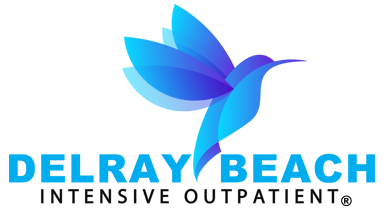How long a patient stays in addiction treatment is highly variable, depending on the severity of their substance abuse problem, what level of care they require in their treatment, the strength of their motivation to recover, their individual mental and physical health needs, their personal and professional obligations, how long they have been using what substance, and the emotional and financial resources they have available.
However, having a general idea of how long you may need to remain in what form of addiction treatment could be useful to you when making plans to begin your recovery. Note also that these timelines may or may not include detox, which may require a stay in a medical facility for five to ten days before a longer rehabilitation program can begin.
Generally, programs will not last longer than about three months or 90 days, though 120 day programs are not unheard of and extensions of stays are routinely called for for patients who are still struggling. On the other hand, most programs will have a lower limit of around 28 to 30 days, or one month. 60 day programs are also fairly common, as are programs that begin with a 30 day commitment and in which decisions about extending a patient’s stay are made based on how they are progressing through treatment.
Another rule of thumb, though, is that more treatment is better, with studies having found that a longer duration of treatment is associated with better treatment outcomes. As opposed to 17 percent of patients who relapsed in the year following a stay in a treatment program that lasted 90 days or longer, 35 percent relapsed after a stay that was less than 90 days.
Other research has also shown that relapse rates continued to decline as patients remained in treatment longer than 90 days. A longer program provides patients with a longer time away from negative influences and temptation, allows their coping skills and motivation to stay sober to solidify, gives them more time to deal with any underlying trauma or comorbid mental health problems, and gives their brain and body more time to heal after the acute process of detox.
Yet, realistically, patients may be limited by how long of a leave they can afford to take from work, personal or professional obligations, and how much treatment they can afford, as well as by what duration of treatment their insurance company will cover. But any treatment increases the odds of recovery compared to no treatment at all, so a 30 day program may be a good starting point for someone to make a plan to continue their recovery process past an acute period of intensive treatment, and may be more likely to be covered by insurance than a longer program.
A shorter program may also be sufficient for someone who is only suffering from a mild addiction or has only been abusing drugs for a short period of time, while a longer program is more likely to be required for someone whose addiction is more entrenched, which is why enrolling a struggling addict in a treatment program as soon as possible is essential.
Though it also may be tempting to try and rush through the rehab process as quickly as possible, if an insufficiently long stay eventually necessitates a return to treatment, it could end up costing you more time, money, and physical and mental health in the long run, as longer stays are often recommend after a patient has relapsed after completing a shorter term treatment program.
But their are some options to increase the duration of treatment without it necessarily meaning a longer stay in a highly restrictive and highly expensive residential program. For instance, it is not uncommon for patients to transition into our intensive outpatient program after a shorter stay in in one of these residential treatment programs.
Patients may also choose to transition from residential treatment into a longer term sober living residence, which will provide some structure and accountability to recovering addicts while they continue to attend outpatient treatment or even after treatment itself is completed, with some patients choosing to stay in such residences indefinitely.
It’s also important to remember that the end of treatment does not necessarily mean the end of recovery, or of all recovery services. Some forms of medication assisted treatment are suggested to be continued for as long as a year after a patient undergoes their initial detox, or even longer if patients still feel that they are benefitting.
Regular attendance at twelve step meetings and supports groups, such as our weekly alumni meeting, may also be beneficial to maintaining sobriety long-term, as might regular therapy to help patients deal with any issues, like increased stress or difficult life transitions, that might arise without returning to their substance abuse.
As far as our intensive outpatient program, we recommend that clients enroll for a minimum of sixty days, though clients are encouraged to extend their treatment if they feel as if they are still benefiting from the program.
We also recommend that clients who decide to reside in our sober living residences during or after their treatment commit to the living space for a minimum of 30 days, though we find that clients often benefit from stays as long as 45 to 90 days.
To learn more about about our intensive outpatient program, which will provide patients with the top-notch therapy and expert guidance that will help them to build the scaffolding they need for a lasting, life-long sobriety, feel free to contact us anytime at 833.637.033 or online using this convenient form.
